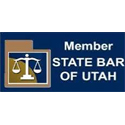What You Need to Know About Utah Paternity Suits
A paternity suit is a legal means of establishing a father’s rights and responsibilities towards a child. In Utah, a paternity suit is just one method for determining paternity. For example, if a child is born to a married couple, the husband is legally presumed to be the father. But when the child is born outside of marriage, the father’s identity must be confirmed in Utah either through a voluntary Declaration of Paternity or a paternity suit.
What Does Paternity Matter in Salt Lake City?
Paternity confers a number of rights and benefits on a child under Utah law. First and foremost:
- the father must provide financial support for a minor child regardless of marital status
- a child also enjoys certain legal rights of inheritance and may be entitled to the father’s survivor’s benefits under Social Security and private pension plans
- paternity may also establish a child’s citizenship in the United States or a foreign country.
How Does a Paternity Suit Work in Utah?
If paternity is disputed, either by the father or the mother, the matter must be settled through an administrative or judicial process. In the case of a Utah administrative paternity order, one parent must petition the state Office of Recovery Services for a child support order against the purported father. This office will then order a genetic test to establish paternity.
Alternatively, a parent may file a petition with a Utah juvenile or district court. Like the administrative process described above, a judicial order can establish a child’s paternity and the father’s support obligations. But a judge can also award additional relief, such as changing the child’s name, establishing custody arrangements, and setting a visitation schedule.
Is a Utah Paternity Suit Always Necessary?
If the mother and father agree on the issue of paternity, they can file a voluntary declaration with the Utah Department of Health’s Office of Vital Records and Statistics. This declaration is typically signed at the time of the child’s birth, but it can be filed at any time.
Once signed, either parent may rescind a voluntary declaration within 60 days or the entry of a child support order, whichever occurs first. If a voluntary declaration is rescinded in this manner, either parent may still seek to establish paternity through a judicial or administrative order.
 Keep in mind, even a voluntary declaration of paternity may not resolve all outstanding legal issues between parents. The administrative process cannot resolve custody and visitation issues. Parents may still need to seek a judicial order on such matters.
Keep in mind, even a voluntary declaration of paternity may not resolve all outstanding legal issues between parents. The administrative process cannot resolve custody and visitation issues. Parents may still need to seek a judicial order on such matters.
Get Advice from a Salt Lake City Paternity Attorney
Whether you are a mother or father looking to prove (or disprove) paternity, it is important to seek legal advice before heading into court or an administrative proceeding. A Utah divorce law firm can provide paternity law help. Contact Jill Coil and the lawyers at CoilLaw, LLC, in Salt Lake City if you need to speak with someone about your paternity case today. Call (801) 884-3775 now.




